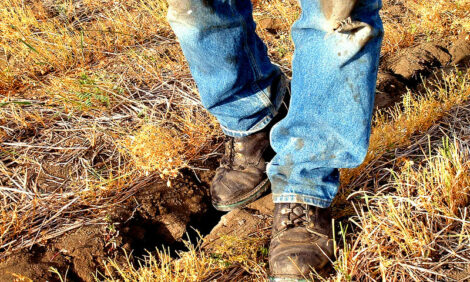



Raw Milk Price Compromise Must Be Reached
SOUTH KOREA - Concerns about a "milk crisis" are rising as the country's livestock farmers and dairy companies are locking horns over a hike in the supply price of raw milk, writes Yonhap News Agency. The farmers demand that the price of raw milk rise 25 per cent but the dairy companies suggest a maximum 11 per cent hike. Farmers are planning to suspend supply for one day Wednesday to protest the milk companies' stance.
The Korea Dairy & Beef Farmers Association (KDBFA), speaking for dairy farmers, said on Monday that its members will refuse to supply 5,200 tons of raw milk on Wednesday as dairy companies will not accept their demands. The association added that it plans to halt the supply indefinitely if their negotiations with the milk companies make no progress by Friday.
The supply of raw milk has been already unstable with the sharp drop in the number of dairy cows due to the spread of mouth-and-foot disease early this year and the recent scorching heat wave.
The government culled nearly 150,000 head of cattle in order to curb the deadly animal disease during the winter months. Of them, 36,000 were dairy cows, prompting a 10 to 15 per cent decrease in milk production.
Dairy farmers argue they are sitting atop a heap of debts as the raw milk price has been frozen for the past three years although the feed price has risen by 30 per cent in the meantime. They say they are in the worst plight ever.
"The farmers are suffering difficulties coming from reduced milk production due to the aftermath of foot-and-mouth disease. The price of raw milk should be raised sufficiently," the association said.
The dairy companies maintain that a sharp increase in the raw milk price would lift the prices of dairy products at the market, which would cause lower consumption.
If the raw milk price goes up 10 per cent, the prices of consumer dairy products should rise between three to 10 per cent, effecting price hikes for bread, cakes and ice cream as well.
Both sides seem to have their own reasons. However, extreme confrontation in negotiations does neither side any good as it just hurts consumers. Milk has long been a major source of nutrition for low-income earners and young students. Suspension of the raw milk supply will subsequently cause a milk shortage in the market and this extreme situation should be avoided under any circumstance.
Adding to worries is the fact that the suspended supply of milk could affect schools once classes resume in September. After all, during the academic year, schools' demand for milk increases.
The government needs to mediate between the two sides now engaged in a tough tug of war. Consumers need the government to mediate wisely between the dairy farmers and milk companies. Meanwhile, we urge the two opposing sides to each give a little ground in order to avoid an extreme situation.
TheCattleSite News Desk


